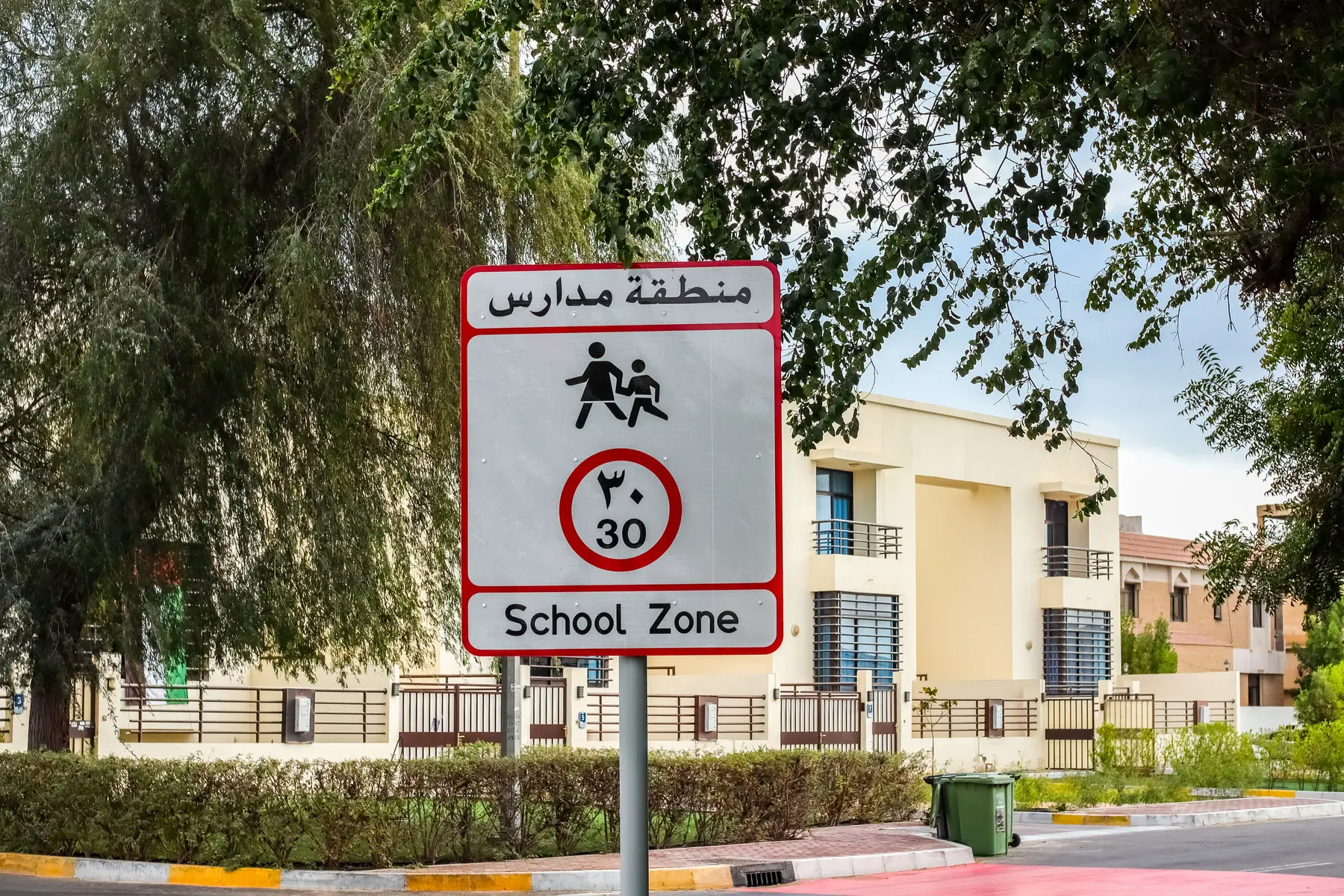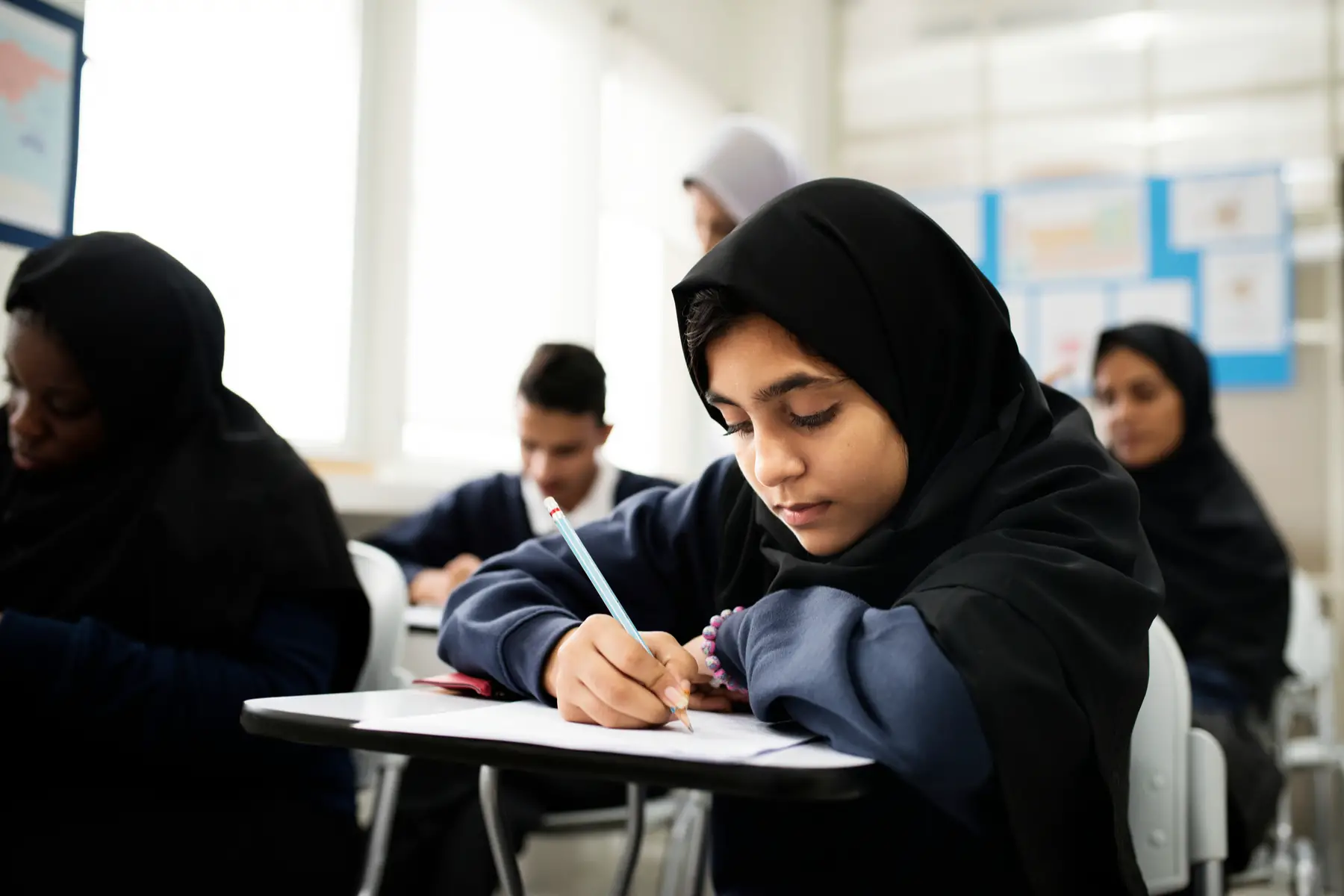Qatar may be small in size, but it is a high-income country that hosts people from every corner of the globe. And for parents moving to the peninsular, education is a top concern. As a result, schools in Qatar cater to expats and offer instruction in many languages. In this guide, we’ll review everything you need to know about the secondary school system in Qatar, including the following topics.
The secondary education system in Qatar
Since embarking on an overhaul of its education system in the early 2000s, Qatar has improved its global rankings. By 2017, it ranked fifth out of 137 countries for quality of education; although it lost a place, falling to sixth in 2018. And while the World Economic Forum didn’t release a new ranking in 2021 – despite claims to the contrary – it is clear that education remains a priority in Qatar. Primary school is mandatory for six to 12 years olds, and the country’s universities are well-regarded. In fact, Qatar places 37th worldwide for higher education and training.

Sandwiched between primary and tertiary education are the secondary schools of Qatar. These schools follow two streams: public schools and private schools. Public schools teach students aged 16 to 18 and cover grades 10 to 12, while the structure of private secondary schools will depend on each school’s educational model. Notably, public schools have Arabic as the primary language of instruction.
Private secondary schools gear themselves to serve expats. As such, the language of instruction will be English (either UK or US) at various British, Canadian, and American international schools. Given that 90% of Qatar’s population are expats, you will also find several national schools; from French, to Pakistani and Indian. Their curriculums will track that of their home countries. Similar to many Western countries, private secondary schools will often teach grades 9 through 12.
However, it is important to keep in mind that some secondary schools are nested within schools that teach students across all grades, from kindergarten to high school. Additionally, graduation requirements will depend on the particular institution. Therefore, whether students must pass national or international exams or simply pass their classes will depend on where they are enrolled.
Public secondary schools in Qatar
Public secondary schools in Qatar are free and in the past, were open to very few non-Qataris. Historically, only non-Qataris who worked for the state could enroll their children in public schools. However, this is changing, and it was announced in 2021 that private-sector workers can also enroll their kids in public schools.

Qatar currently has 60 public secondary schools throughout the country, and most of these are around Doha. As with other parts of the world, the quality of public secondary schools will vary depending on the school. Therefore, if you are interested in a particular school, be sure to ask parents with enrolled students for their opinions of it.
The curriculum in state secondary schools in Qatar
Notably, the school week in public secondary schools in Qatar runs from Sunday to Thursday which may be different from what you are used to. The school year usually runs from September to June, with holidays taking place in December, March, and over the summer. Generally, secondary schools in Qatar teach science, mathematics, Islamic education, Qatari history, as well as Arabic and English. Some specialized public secondary schools focus on trade or professional studies, such as banking, business, and religion.
Like elsewhere in the world, class sizes, physical education, and extra-curricular offerings will vary from school to school in Qatar. So too will teaching methods, and many schools in Qatar rely on frequent testing and rote memorization. That said, all pupils have to sit exams, which are usually set at mid-term and at the end of a semester.
Both local and specialized public schools also cater to secondary-age children with special educational needs (SEN). Support at these schools should include the following:
- Assisting SEN students with integrating into schools
- Devising individual study plans
- Adapting curriculums to specific individual needs
- Specialists to help boost student’s independence capabilities
The pros and cons of state schools in Qatar
Enrolling your child in a public secondary school in Qatar will offer your family a unique opportunity for cultural exchange and learning. Indeed, your child, and you, could befriend people that you would otherwise have limited access to. Learning in Arabic would also strengthen your child’s language skills, which is something they would carry with them forever.

That said, it’s also important to keep in mind that older children might find it harder to learn in a new language of instruction. And, for expat parents, trying to manage school bureaucracy in another language and culture is a challenge. It might also be tricky to determine which are the better-quality public schools, as this information may be passed by word of mouth. Finally, as a family, you will have to consider how graduating from a public secondary school in Qatar will affect your child’s plans for further study.
Applying to secondary state schools in Qatar
You will need to apply online to enroll your child in a public secondary school in Qatar. You can simply submit your registration request, as well as copies of the required documents. It might also be wise to speak with your employer to verify that you do have access to public schools in the country. They could also help facilitate the process.
Private secondary schools in Qatar
Most expats choose to send their children to private secondary schools, and there are two types of private schools. Firstly, there are independent schools that follow Qatari guidelines and curriculum for subjects like mathematics and science. These schools use Arabic as their language of instruction. Secondly, there are international schools that follow various international guidelines and curriculums. These schools may teach in English or other non-Arabic languages. Because private schools operate as individual units, their costs, offerings, and boarding options vary.
For parents of children with special educational needs, the good news is that several private secondary schools offer support. Private schools that offer SEN support, similar to that offered at public schools, include:
In addition, many schools partner with organizations such as the Mind Institute. This allows children with SEN to have classroom ‘shadows’ who assist them at school.
International schools in Qatar
Expats moving to Qatar often enroll their children in international schools, like the ones mentioned above. These schools usually follow a foreign, accredited curriculum and may have specific teaching methods. Furthermore, many international secondary schools in Qatar offer instruction from kindergarten through to high school graduation. This is something that many parents appreciate. These schools also gather diverse students and usually offer institutional support to assist families in adjusting to their new home.

As mentioned earlier, you will also find dozens of private schools in Qatar with a particular national focus; from Filipino to Finnish, and German to Tunisian. Costs depend on the institution, however, for Western schools, the annual cost can range from QR 40,000 to QR 80,000. Therefore, you have plenty of options and a broad price range to choose an international school.
The pros and cons of international schools in Qatar
International schools can be an attractive option for several reasons. For starters, students can maintain their home country’s educational standards or the country in which they plan to study. This is especially helpful at the secondary level as university-bound students don’t have to worry about their diploma being accredited. Additionally, international schools provide a unique balance of catering to the needs of expats, while also bringing together many different cultures in the classroom.
On the flip-side, however, being part of an international school does mean having fewer opportunities for cultural exchange with the Qatari people. In addition, international schools can also come with a hefty price tag, which can be prohibitive for some families.
Graduating in Qatar
The road to secondary school graduation in Qatar will differ from school to school. Most private schools either offer an internationally accepted diploma or one that is specific to their institution. Whether students simply need to pass their classes to graduate or need to pass a wider assessment, is fully dependent on the school.

University requirements will also depend on where your child will eventually study. Therefore, be sure to discuss this with the schools that your family is interested in. Admission to a university is one of the reasons why the International Baccalaureate (IB) program is popular with expat parents. We explore this in a bit more detail below.
The International Baccalaureate (IB) in Qatar
Many expats worldwide are drawn to the IB program because it is globally recognized, and because of its reputation for excellence and rigor. IB students will study science, mathematics, the arts, literature, and language, with a particular emphasis on service projects. Graduates who hold an IB diploma often have an easier time gaining admission into a university, because they don’t face the accreditation barrier that others may. As of 2021, some 5,400 schools in 159 countries offer IB programs. And of these, 14 secondary schools offer the IB program in Qatar.
Trade schools in Qatar
Trade schools in Qatar are not an option for most expats. However, Qatari students and expat students who have permission can enroll in government trade schools. While some private schools may offer trade courses, they will only account for a small portion of the curriculum. And since most expats attend private schools in Qatar, options for learning a trade are limited on the peninsula.
Useful resources
- Ministry of Education – provides an interactive map of public and private schools in Qatar
- Doha Family – publishes regular news and features about education in Qatar
- International Baccalaureate – the official IB website with informaiton on the benefits of the IB, univeristy admission, and more







